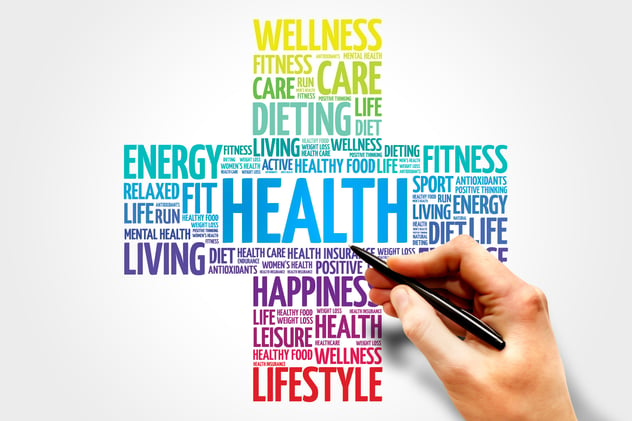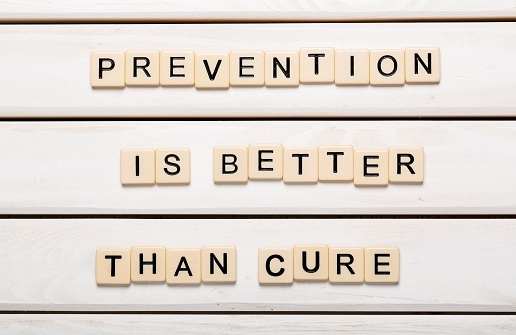Preventative health care isn’t only care you receive to avert a health issue before it becomes an illness. It’s a way of life. From your lifestyle to vaccinations and early detection, the purpose of preventative health care is to avert a serious health problem. According to the Center for Disease Control, 7 in 10 deaths in the United States are attributed to chronic diseases. Several chronic diseases are preventable, and even treatable if caught early. Committing to health care prevention won’t only improve your life – it just might save it one day.
The steps to practicing prevention are easy to start, and easier to continue. It’s normal to have questions about the process as a whole: What does the big picture look like? How does a person use preventative health care? Who is in charge of this kind of health care? Where is all of this done? Why should I use preventative health care?

The Big Picture
Preventative health care isn’t one doctor’s appointment. It’s not one test. It’s not antibiotics. It is a series of steps taken by you, your doctor, and your insurance provider to improve your health both short and long term.
Prevention means living a cleaner lifestyle. Less simple sugars and high-fat foods, more vegetables and lean protein. Exercising daily, even if it’s walking for 20 minutes. Being liberal in your hygiene and washing your hands throughout the day as you change tasks, giving special attention to washing when you’ve been in high traffic areas, around others who are sick, after using the restroom, and before eating.
“It’s a way of viewing your life and health as a whole…”
Making small changes in your day-to-day routine has been shown to reduce your risk of chronic illnesses like heart disease and diabetes -- otherwise known as the #1 and #7 causes of death in the U.S. in 2014.
Prevention means staying on top of check-ups and screenings to aid in early detection of health problems that have the potential to evolve into serious issues if not caught and treated early.
Something as simple as washing your hands regularly can constitute preventative health care by lowering your risk for communicable diseases. The big picture? It’s a way of viewing your life and health as a whole rather than waiting until certain parts of your body aren’t working right before getting help.
How To Use Preventative Healthcare
Work with your health care provider to create a plan incorporating preventative health care into your schedule. Get assistance staying up-to-date on and understanding vaccinations, yearly flu shots, annual check-ups, mammograms, prostate exams, or any other exam tailored to disease and illness you may be at risk for.
The term “at risk” refers to your level of susceptibility among the average population based on statistics. To assess your risk factors a doctor will assess several different aspects including your medical history, family medical history, daily habits, lifestyle, age, and weight. It sounds like a handful, but rest assured you will receive customized care and recommendations for at-home preventative health care if you maintain an open and honest line of communication with your doctor.
Who’s in charge of preventative health care?
You! You are your own boss in this scenario. The goal is to eliminate a problem before it’s a serious threat to your health.
Your life is in your hands, and you have the freedom to do as you’d like with it. You can eat healthy, you can exercise, you can watch your alcohol consumption, you can make small choices every day to gradually improve your health.
If you have concerns about dietary and exercise-related restrictions, consult with your primary care provider about how to proceed. You can receive guidance about meal planning tailored to your restrictions, and advice about which exercises will help you achieve your goal without injuring your body.
Work with your insurance company, and with your primary care doctor, to discuss appropriate timing for your appointments and medications (i.e. vaccinations).
“…a system designed to give you more control over your health.”
Where is all of this done?
You don’t have to make several trips to see your doctor when practicing preventative health care! It takes place in your community, your primary care provider’s office, and your home! Preventative care is a system designed to give you more control over your health. It allows you to decide where, when, and how often you play an active role.
You don’t even have to make multiple visits to your doctor’s office when tending to your preventative care needs. The Medical Specialty Center at Orchard Hospital is Your Everyday Health Care Clinic, offering walk-in care or appointments. Specialty exams such as mammograms and prostate exams can also be coordinated by your doctor based on your age and collective risk factors.
Why should I use preventative health care?
Preventative health care can save your life! The leading chronic illnesses including heart disease, type 2 diabetes, and cancer, do not have to be life threatening. With proper diet and exercise, both heart disease and type 2 diabetes can be avoided. With regular check-ups you can find out when you’re at risk for these diseases, and take the necessary steps to avoid the progression into full on chronic disease.
Several types of cancer, if caught early enough, can be treated. People don’t spend their days thinking about how likely they are to have cancer, but your primary care provider will be looking for anything out of the ordinary during your check-ups and subsequent bloodwork.
If the doctor notices something suspicious during your appointment or in your lab work, they will work with you to properly assess your condition. This increases your odds of early detection -- which often gives you stronger odds of remission after proper treatment.

Don’t believe us? The American Cancer Society states the survival rate for stage I breast cancer is 100%. For stage II, the 5 year relative survival rate is approximately 93%. At these early stages you may not feel the notorious lump. However, a mammogram will detect an abnormality long before you can feel it.
This is your health; you don’t have to roll the dice with it. Take the reins, be proactive, and contact the Medical Specialty Center to schedule an appointment to get the ball rolling!
Whether you’re stellar at making annual appointments, or haven’t had a check-up in years, there's no judgement and we’d like to see you start somewhere!
Our mission at Orchard Hospital is to provide our community with superior health care. We strive to ensure that your experience at Orchard Hospital is as pleasant and comfortable as possible. Our priority is to provide you with the care you need when you need it, with skill, compassion, and respect.



